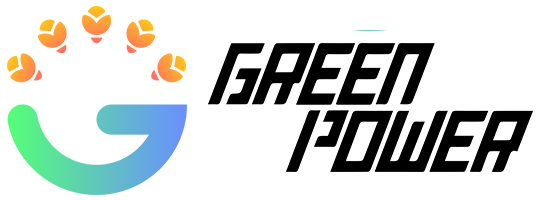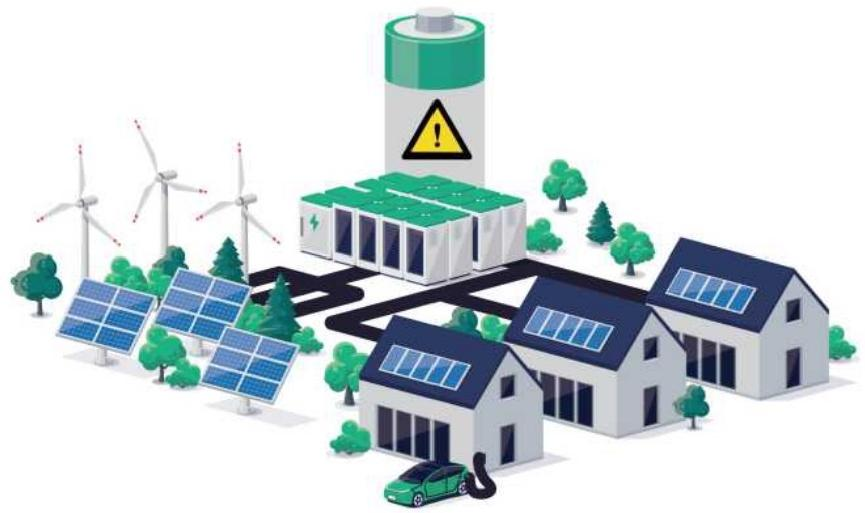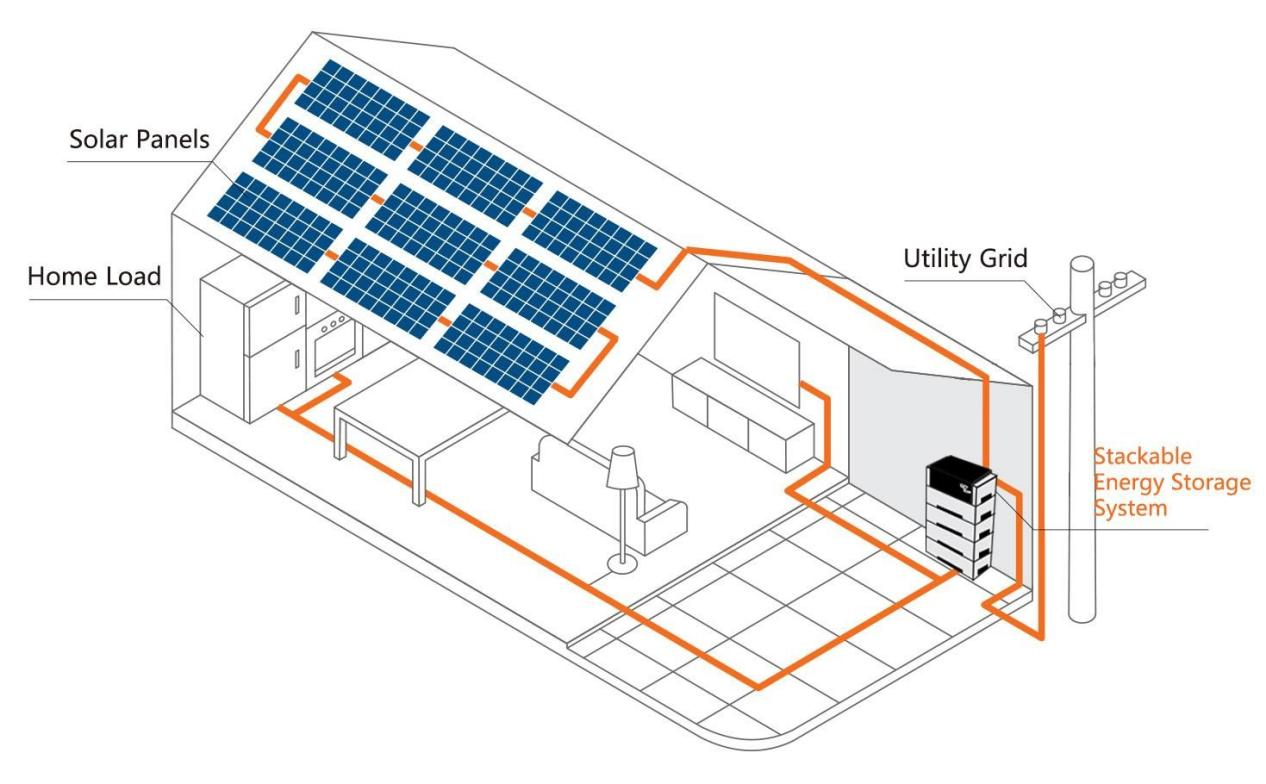Amid the rising tide of sustainable energy solutions, residential energy storage has emerged as a prominent application within the realm of user-side energy storage. It allows homeowners to independently charge during low-demand periods and use stored energy during peak demand or power outages. In recent years, the European energy crisis exacerbated by geopolitical tensions has led to an unstable energy market in Europe, consequently driving the demand for residential energy storage. Simultaneously, Chinese products like photovoltaics (PV) and residential energy storage have gained immense popularity, prompting numerous Chinese enterprises to venture into overseas residential energy storage markets.
During the early stages of residential energy storage development, residential PV systems often utilized a full-grid export approach to secure favorable feed-in tariffs. However, the intermittent and fluctuating nature of PV generation began to pose challenges to grid stability. To address this issue, energy storage systems were gradually introduced to allow homeowners to better manage and utilize the energy they generate. This integration of energy storage systems has provided crucial support for the sustainable development of residential PV systems, enabling greater self-sufficiency.
As a pioneer in the European energy market, Germany has actively explored the demand and application of residential energy storage. Data reveals that by 2022, Germany held the title of the world's largest residential energy storage market, with an added capacity of approximately 1.6 GWh and a cumulative capacity exceeding 6 GWh. In Germany, the combination of residential PV and energy storage has become an economically viable energy solution.
From an economic standpoint, the German residential energy storage market offers a relatively short return on investment (ROI) period. According to survey data, a typical residential energy storage system consists of a 15 kWh battery and a 10 kWp PV inverter. Although the initial installation costs are relatively high, assuming self-consumption and an electricity price of €0.39/kWh (Berlin residential electricity price in May 2023), the 10-year internal rate of return (IRR) of the German residential energy storage system is around 16%, with a break-even point reached by the sixth year. Furthermore, Germany provides additional subsidies for 15 kWh residential energy storage systems, further enhancing their economic viability and reducing the investment payback period by two years.
Of course, the economic viability of residential energy storage systems is influenced by various factors, with electricity price sensitivity being one of the most significant. Rising electricity prices would elevate the ROI, while decreasing electricity prices would correspondingly lower it. Additionally, system costs also affect the economic viability of the system. If energy storage system prices continue to decrease, the economic feasibility of residential energy storage will further improve.
Simultaneously, GREEN POWER's residential energy storage products from China exhibit robust competitiveness. The All-In-One Stackable Energy Storage System from GREEN POWER boasts compactness, stackability, easy installation, and a sleek aesthetic, offering a fresh solution to the residential energy storage market. Its compact design seamlessly integrates into any living or working environment, maximizing space utilization. The innovative stackable design provides users with flexibility, allowing both households and businesses to easily expand energy capacity as needed. Moreover, the integrated design philosophy simplifies installation, reducing initial investment and maintenance costs. GREEN POWER's product design emphasizes the fusion of aesthetics and efficiency, featuring a modern appearance and clean lines that enable it to blend perfectly into any environment.
Functionally, GREEN POWER's residential energy storage system is equipped with an advanced battery management system that features remote WIFI control, enhanced security features, and multiple layers of safety protection, ensuring a secure and reliable energy storage solution from hardware to software.
In conclusion, the German residential energy storage market displays a positive growth trajectory in the context of sustainable energy. With the increasing demand for residential energy storage, GREEN POWER's residential energy storage products emerge as strong contenders in the market. Their compact design, flexible expandability, sleek appearance, and advanced battery management system provide users with comprehensive solutions. Whether in the German residential energy storage market or on a global scale, residential energy storage will continue to play a vital role in shaping the future of sustainable energy.
If you're interested in learning more about our solar energy storage offerings, we encourage you to explore our product line. We offer a range of panels and battery that are designed for various applications and budgets, so you're sure to find the right solution for your needs.
Website:www.fgreenpv.com
Email:Info@fgreenpv.com
WhatsApp:+86 17311228539
Post time: Aug-09-2023













